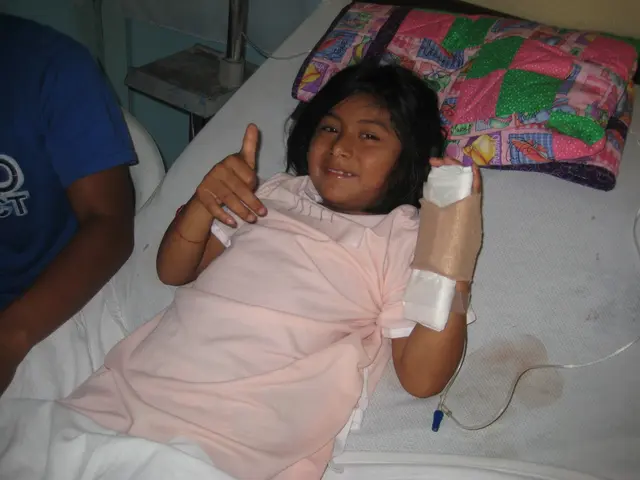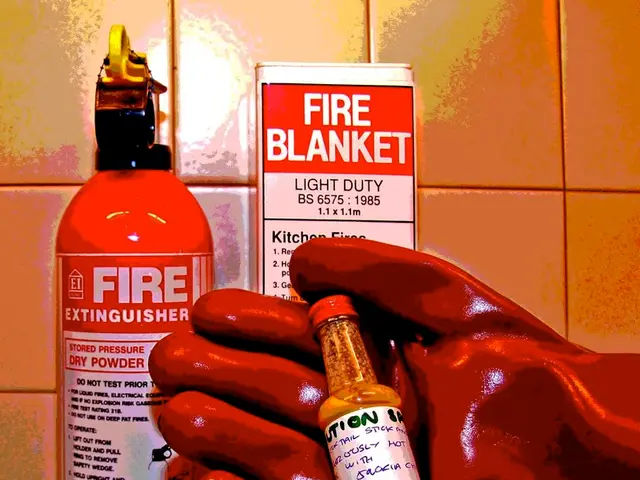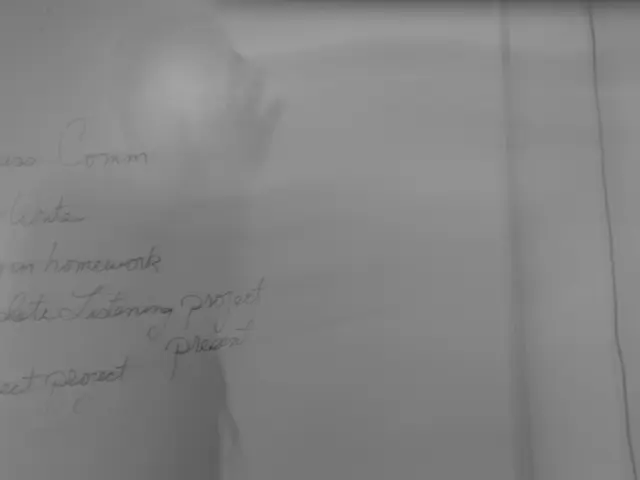Authorities deliver remains of crash casualties following aviation disaster
Crash Victims' Remains Handed Over, DNA Analysis Speeding Up Identification
The heart-wrenching aftermath of the recent air disaster in western India has seen authorities delivering the first set of mortal remains to families who've tragically lost loved ones. As of now, 32 victims have been identified through the DNA-matching process, according to Rajnish Patel from the Civil Hospital in Ahmedabad, as reported by Indian news channel CNBC TV18.
With nearly 270 deaths confirmed by media reports following the Thursday catastrophe in Ahmedabad, Gujarat, official death tolls are yet to be disclosed as the identification of bodies continues.
The ill-fated Air India plane plunged into a residential area shortly following takeoff from the airport, sending a catastrophic fireball into the sky. Among the 241 souls claimed aboard, one British passenger miraculously survived. The Boeing 787-8 was bound for London.
A Swift Approach to DNA Analysis
The hurdle of time-consuming DNA analysis seems to be under control, thanks to accelerated techniques. According to local news outlets, the head of the forensic medicine and toxicology department at the Narendra Modi Medical University has revealed a process that completes the DNA analysis within a remarkable 72 hours—a usual process that typically takes 3 months.
Police in Ahmedabad cautioned that a definitive death toll remains elusive, as unidentified body parts from the accident site have not yet been matched through DNA analysis. Many bodies were reportedly reduced to unrecognizable fragments, while some individuals still appear on the missing list.
Expediting the Process and Managing Challenges
In the wake of disasters like this, advanced DNA analysis technologies and resources are pooled together. This collaborative effort allows for parallelization, streamlining procedures, and a focus solely on the task at hand, expediting the process.
However, challenges persist: DNA samples extracted from victims could be degraded due to crash conditions, and the matching process requires utmost care and precision. Regardless, with priority given to such investigations and extensive resources at play, speedier results can be expected.
- The speedy identification of victims is being facilitated by advanced DNA analysis techniques, allowing for completion within 72 hours, compared to the usual 3 months.
- Medical professionals and authorities are working together to overcome challenges in DNA analysis, such as potential degradation of samples due to crash conditions, in order to expedite the identification process.
- General news outlets are reporting on the accelerated DNA matching process in the aftermath of the air disaster, which is playing a crucial role in identifying victims and providing closure to their families involved in crime-and-justice issues or medical-conditions, as well as contributing to the health-and-wellness and science sectors.








